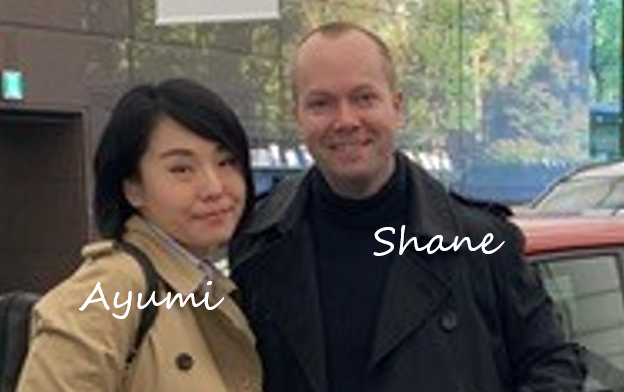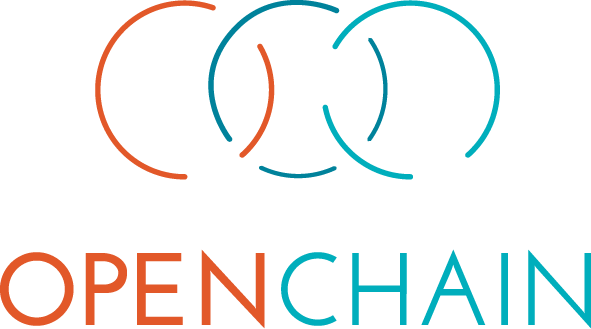はじめに
こんにちは。あるいは、はじめまして。
OpenChain Japan WGのアドベントカレンダーへようこそ!
私たちOpenChain Japan WGは、OSS(Open Source Software)のコンプライアンスに関する活動をしている日本のコミュニティです。
これから25日間にわたって、コミュニティのみんなでたくさんのことをお伝えしていきたいと思います。このアドベントカレンダーを通して、私たちの活動やOSSコンプライアンスの重要性について知っていただくとともに、コミュニティのメンバーについても知っていただき、参加したいなと思っていただけるようになれば幸いです。
どうぞよろしくお願いします。
自己紹介
アドベントカレンダーのトップバッターを務めさせていただきます渡邊歩です。OSSの活用に関するコンサルテーションを生業としています。
好きなライセンスは、Beerware Licenseです。
OSSコンプライアンスについては8年ほどのキャリアになりますが、OSS管理のベストなやり方を提案し、お客様と一緒にOSS管理のプロセスを作りあげていくお仕事をしています。
OpenChainについて
OpenChainは、Linux Foundationの公式プロジェクトのひとつで、OSSのライセンスコンプライアンスプログラムを組織が構築するための指針を整備しているプロジェクトです。OpenChainは、ソフトウェアのサプライチェーンの中で活動する人々が各組織内に確立すべきコンプライアンスプログラムの要件を、OpenChain仕様として定義し、各組織がそれらを確立するための支援を行っています。
Japan WGについて
OpenChain Japan WGは、日本で活動するOpenChainのワーキンググループで、日本企業ならではの課題や解決策について議論や情報交換を行っています。Japan WGの中には更にPlannning, Tooling, Promotion, FAQ, リーフレット, 教育資料, ライセンス情報など、たくさんのサブワークグループがあり、それぞれが活発に活動しています。このアドベントカレンダーでは、それぞれのサブワークグループのリーダーによる活動報告もありますのでお楽しみに!
我々のまとめ役、Shaneさん
OpenChainのゼネラルマネージャーのShane Coughlanさんは、我々のまとめ役として、我々の活動をいつも、温かく応援してくれています。
Shaneさんからのコメントを紹介します!
The OpenChain Project defines the industry standard for open source compliance. It identifies the inflection points where a process, or a policy, or a training program should exist. At a high level, it takes the knowledge of thousands of people from hundreds of companies in this space, and it condenses it into clear, unambiguous definitions that any company in any market can adopt.
The OpenChain industry standard does not dictate the content of each process, policy or training program because it needs to be applicable to companies of all sizes in all markets. However, we have a super active and supportive community. There is reference material of all sorts – including entire reference training programs or multi-industry policy options – accessible via our website.
Indeed, the community of the OpenChain Project is our most valuable asset. We have local work groups in China, India, Japan, Korea and Taiwan. We have global mailing lists for the project as a whole, for automated tooling, for automotive. There is an incredible amount of energy and passion around collaboration in this space. We are all learning, and improving, due to this.
The OpenChain Japan Work Group holds a special place in my heart. It was our first local work group and it is our largest, most successful local community activity. People from so many companies and situations join together, share their thoughts, and collaborate to make things better. It captures the heart of open source. I hope that you can experience some of this during our 25 day advent calendar.
(日本語訳)
OpenChainプロジェクトは、オープンソースコンプライアンスを実施するために必要な業界標準を定義しています。この業界標準は、組織にオープンソースコンプライアンスが定着することを、プロセス、ポリシー、トレーニングプログラムが存在することと定義しています。高いレベルで、この分野の数百の企業の数千の人々の知識を、明確で不明瞭さのない定義へと凝縮させています。このため、この定義はあらゆる市場の企業に適用できるものになっています。
OpenChain業界標準は、すべての市場のあらゆる規模の企業に適用できる必要があるため、プロセス、ポリシー、トレーニングプログラムの具体的な内容には触れません。しかしながら、我々には非常に活発で協力的なコミュニティがあり、有益な情報を相互に共有することができます。あらゆる種類の参考資料(網羅的なトレーニングプログラムや複数業種に適用できるポリシーなど)を、我々のWebサイトから入手することができます。
OpenChainプロジェクトのコミュニティは、まさに我々の最も貴重な財産とも言えるものでしょう。中国、インド、日本、韓国、台湾などにローカルワークグループがあります。また、OpenChain全体(グローバル)のメーリングリスト(ML)にも、プロジェクト全体のML、コンプライアンスの自動化ツールのML、自動車分野のMLが存在しています。各地域のワーキンググループや各トピックのメーリングリストを通じて行われるコラボレーションには、信じられないほどのエネルギーと情熱があります。このような「熱い」コラボレーションにより、私たちは皆、これにより新たな気付きを得、自ら改善することができるのです。
OpenChain Japan WGは私にとって特別なものです。我々OpenChainにとって初のローカルワークグループであり、かつ最も大きくかつ成功しているローカルコミュニティでもあります。多様な企業、異なる状況にあるメンバーが一緒に活動し、意見を交換しながらより良いものを目指して協力しています。これはオープンソースの精神そのものであると思います。このアドベントカレンダーの読者の方が25日間を通して我々の活動を体感していただければ嬉しく思います。
明日のテーマは・・・
明日のテーマは「Planningサブワークグループの紹介」です。
担当は、いつもワーキングの色々なタスクを率先してやって下さる、とっても優しい今田さんです。
では明日の記事をお楽しみに!!
来週:
OpenChain プロジェクトおよび OpenChain Japan WG のご紹介










